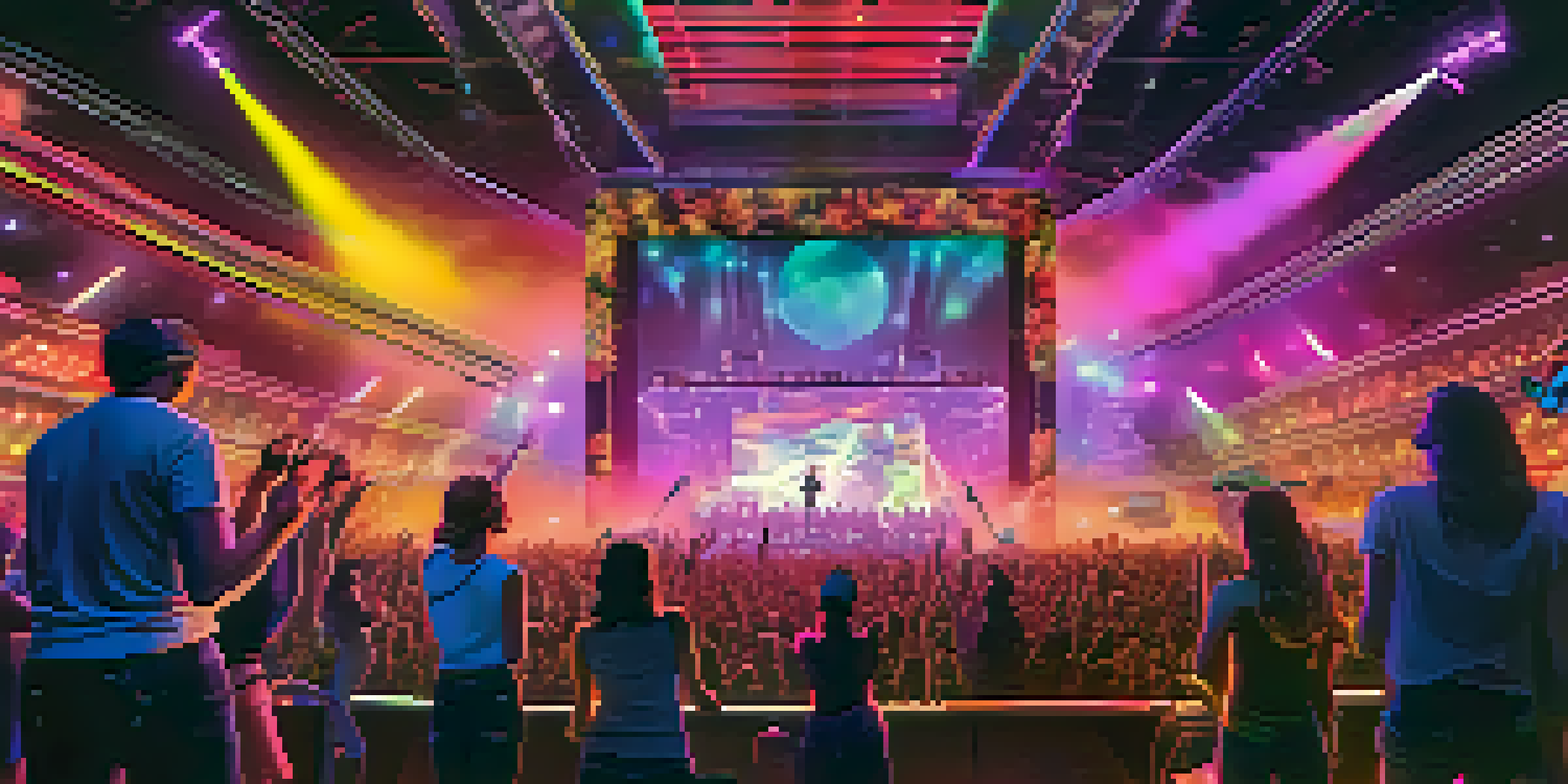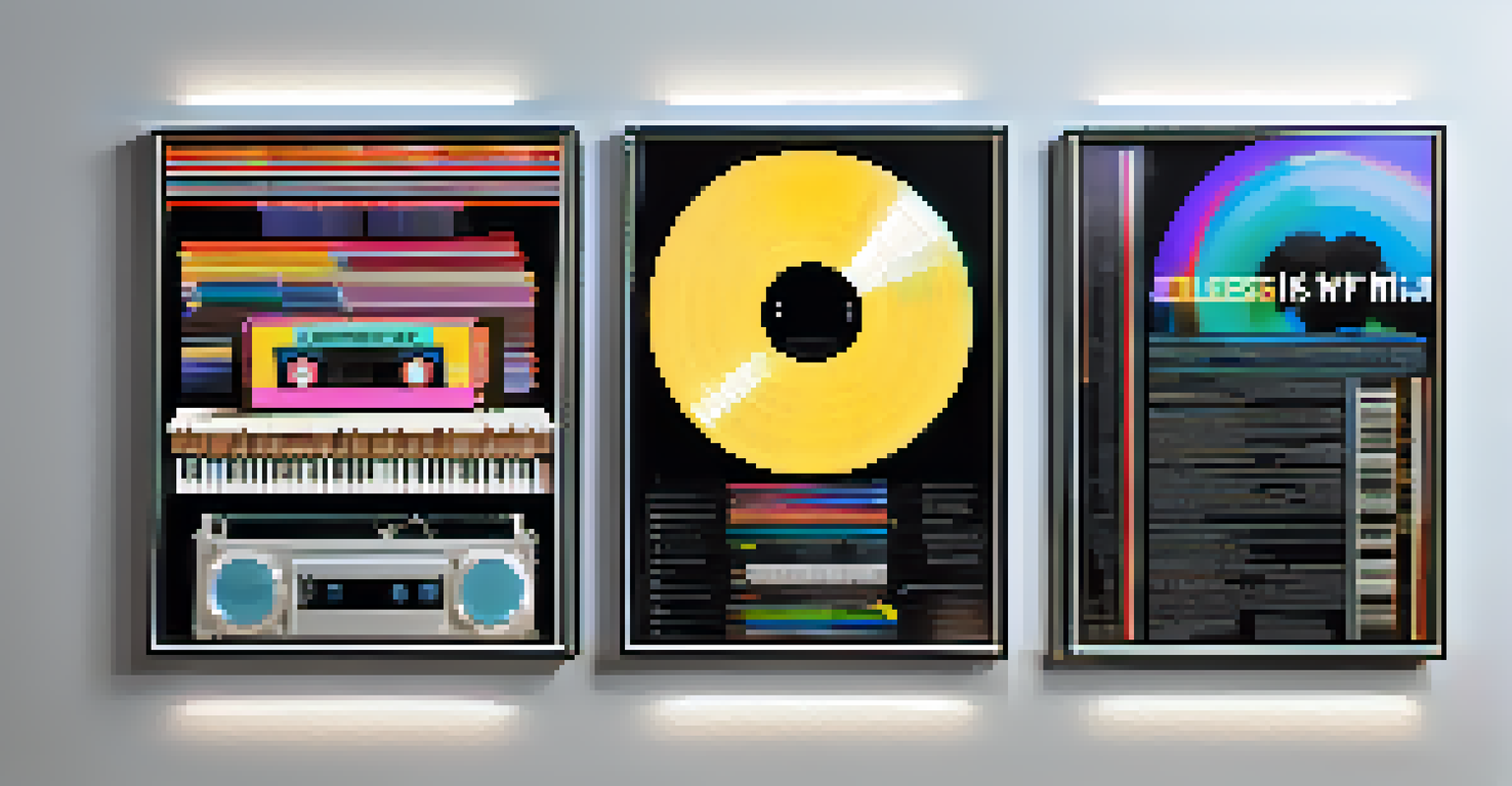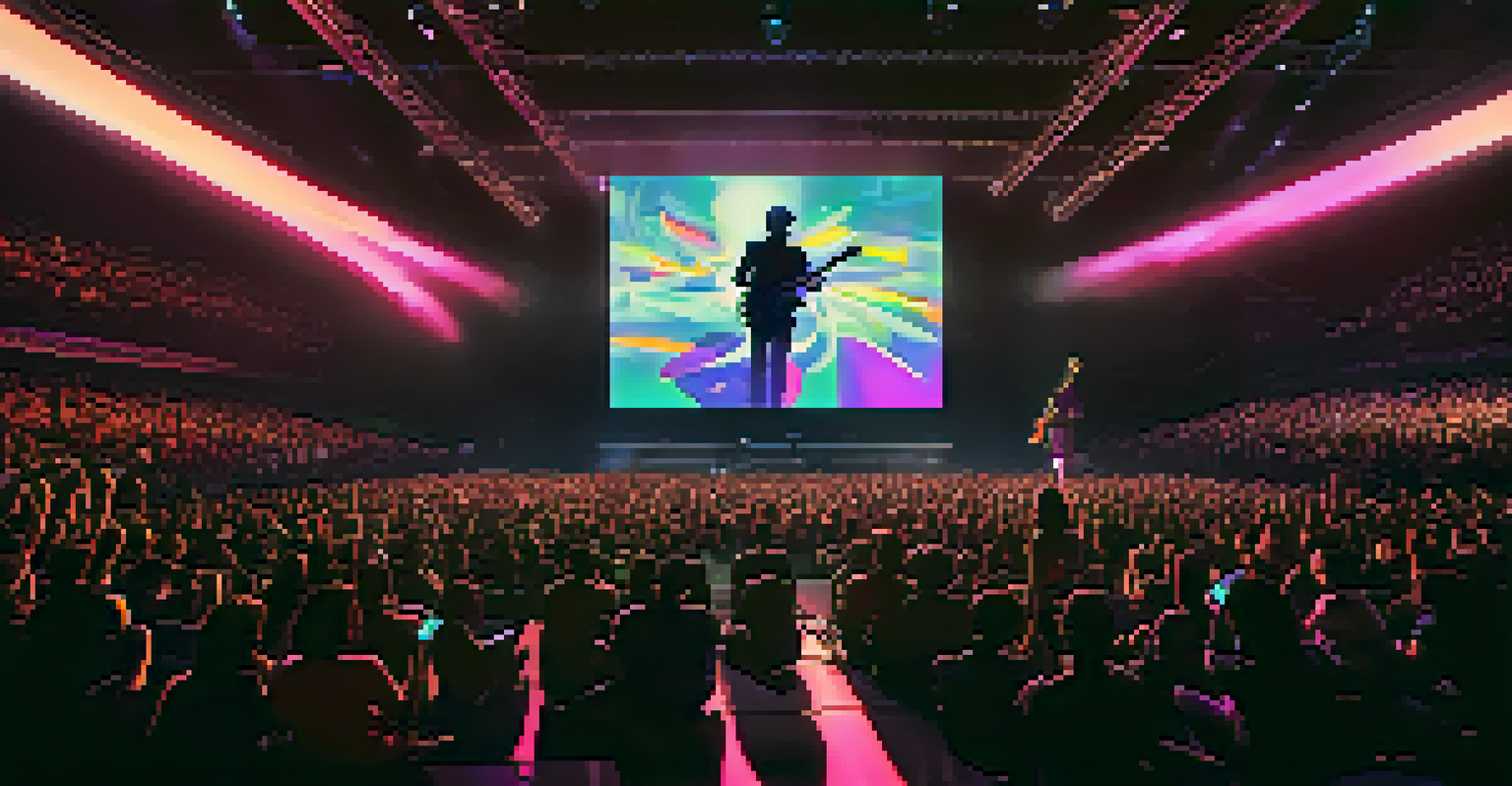The Role of NFTs in Music Ownership and Digital Collectibles

Understanding NFTs and Their Growing Popularity in Music
Non-fungible tokens, or NFTs, are unique digital assets verified using blockchain technology. Unlike cryptocurrencies, which are interchangeable, each NFT has distinct information that makes it one-of-a-kind. This uniqueness has captured the attention of artists and collectors alike, creating a buzz in the music industry.
The future of music belongs to those who create it, and NFTs offer artists the opportunity to reclaim their voice and revenue.
Musicians are increasingly using NFTs to offer fans exclusive content, such as unreleased tracks, concert tickets, and even art associated with their music. This shift allows artists to connect with their audience in a more personal way while also giving them a new revenue stream. For example, the band Kings of Leon released an NFT album that included exclusive perks for fans.
As more artists jump on the NFT bandwagon, it's essential to understand their potential and implications for music ownership. NFTs promise to revolutionize how music is consumed and valued, leading to a more interactive and engaging experience for fans.
How NFTs Change the Landscape of Music Ownership
Traditionally, music ownership has been dominated by record labels and streaming platforms, often leaving artists with a small slice of the pie. NFTs disrupt this model by allowing artists to retain more control over their work. By selling their music directly to fans as NFTs, artists can set their own prices and receive a larger share of the revenue.

This new ownership model means that fans can truly own a piece of the music they love, rather than merely streaming it. For instance, when someone buys an NFT of a song, they may receive special privileges like access to private shows or exclusive merchandise. This creates a deeper connection between artists and listeners.
NFTs Empower Artists and Fans
By utilizing NFTs, artists regain control over their music while fans enjoy a deeper connection and ownership experience.
However, this shift also raises questions about copyright and ownership rights. Artists must navigate this new terrain carefully, ensuring they protect their intellectual property while leveraging the benefits of NFTs.
The Appeal of Digital Collectibles for Music Fans
Digital collectibles, like music NFTs, appeal to fans for several reasons. Firstly, they provide a sense of ownership that traditional music consumption lacks. Imagine owning a limited edition of your favorite artist's track or a virtual concert ticket that grants access to special events.
With NFTs, artists can connect directly with their fans, fostering a sense of community and loyalty like never before.
Moreover, NFTs can serve as a status symbol within fan communities. Owning rare digital collectibles can elevate one's status among peers, akin to having a signed vinyl record. This social aspect adds another layer of excitement to collecting music NFTs.
As the market for digital collectibles grows, fans are becoming more savvy about what they want to own. This evolving landscape encourages artists to be more creative in how they package and sell their music, resulting in an exciting exchange between creativity and commerce.
NFTs and the Future of Concert Experiences
NFTs are not just reshaping music ownership—they're also transforming how concerts are experienced. With the integration of NFTs, artists are exploring new ways to engage with fans during live performances. For example, virtual concerts can offer exclusive NFT collectibles tied to specific shows, enhancing the overall experience.
Fans might purchase NFTs that grant them backstage access or unique interactions with their favorite artists. This innovation fosters a new level of intimacy between performers and their audience, making concerts more memorable and personalized.
NFTs Transform Concert Experiences
The integration of NFTs at concerts allows for unique fan interactions and memorable experiences, bridging the gap between artists and audiences.
Additionally, as the world embraces digital experiences, NFTs present a way for artists to reach global audiences. Imagine attending a concert in the metaverse, where fans from around the world can enjoy the performance together, all while collecting unique digital memorabilia.
Navigating the Challenges of the NFT Market
While NFTs hold great promise, the market isn't without its challenges. For one, the environmental impact of blockchain technology has raised concerns among artists and fans alike. Many are advocating for more sustainable practices as the NFT space continues to grow.
The volatility of NFT prices also poses a risk for artists and collectors. The value of an NFT can fluctuate significantly, leading to uncertainty about future earnings. Artists must educate themselves about market trends and pricing strategies to navigate this new landscape effectively.
Moreover, the legal implications surrounding NFTs can be complex. Artists need to be aware of copyright laws and how they apply to digital assets, ensuring they protect their work from potential infringement.
NFTs as a Tool for Artist Empowerment
NFTs offer a powerful tool for artist empowerment, allowing them to reclaim control over their music. By cutting out intermediaries, artists can connect directly with their fans, fostering a sense of community and loyalty. This direct relationship can lead to increased support and engagement from audiences.
Moreover, NFTs can provide artists with a sustainable income stream. By offering exclusive content and experiences, musicians can monetize their work in innovative ways. For instance, an artist might release a series of NFTs that include not just music but also art and personal messages, creating a holistic experience.
Navigating NFT Market Challenges
Despite their potential, artists face challenges in the NFT market, including environmental concerns, price volatility, and complex legal issues.
As more artists embrace this model, we’re likely to see a shift in how music is perceived and valued. This empowerment can lead to a more diverse and vibrant music scene, where creativity thrives and artists are rewarded for their unique contributions.
The Future of NFTs in the Music Industry
As we look ahead, the future of NFTs in the music industry appears promising. With ongoing advancements in technology, artists are finding new and exciting ways to engage with their fans. The potential for interactive and immersive experiences is vast, and we are only beginning to scratch the surface.
Moreover, as the concept of ownership evolves, we might see a rise in collaborative projects where multiple artists create joint NFTs. This collaborative spirit can lead to innovative art forms and cross-genre experiences that enrich the musical landscape.

Ultimately, the integration of NFTs into the music industry signals a shift towards a more artist-centric model. As both artists and fans continue to explore this new frontier, we can expect to see even more groundbreaking developments in the world of music ownership and digital collectibles.